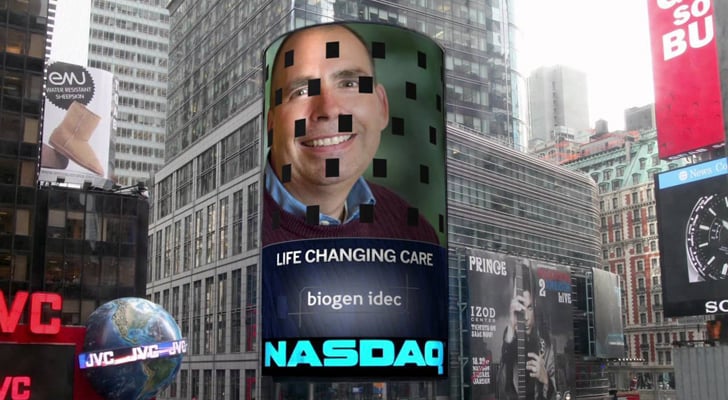Generally speaking, pharmaceuticals are experiencing a mixed year. The sector benchmark, Market Vectors Pharmaceutical ETF (NASDAQ:PPH), is down nearly 2% year-to-date. That’s why it was a surprise when Canaccord Genuity analyst Sumant Kulkarni upgraded Biogen Inc (NASDAQ:BIIB) from a “hold” to a “buy.” BIIB stock has hardly inspired confidence in recent years.
This is especially true for 2018. After a promising start where Biogen shares closed out January up more than 8%, the momentum quickly collapsed. It wasn’t until the prior month that BIIB stock began to recover from its mess. For May, shares gained nearly 7%. Unfortunately, for the year, BIIB is still down 8.5%.
That said, Kulkarni sees a discounted opportunity. Primarily, the current price-to-earnings multiple for BIIB stock is below historical averages. In his view, Biogen’s selloff is overdone. In addition, the pharmaceutical’s Alzheimer therapy portfolio could spark a “fear-of-missing-out (FOMO) rally.” As we just saw in the cryptocurrency sphere late last year, FOMO is indeed a powerful catalyst.
Finally, the Canaccord analyst likes what he sees in the rest of the drug pipeline. Benzinga’s Elizabeth Balboa writes:
Kulkarni considers Biogen’s non-Alzheimer’s portfolio and long-term biosimilar opportunity undervalued, and said he expects the firm’s $37 billion in capital allocation capacity to drive value through more aggressive buybacks or deals that shorten product launch timelines.
Although pharmaceuticals always carry intense volatility risk, Kulkarni may have a point here. Since closing at a year-low $257.52 on April 9, BIIB stock is up 14%. Not only that, competitors such as Amgen, Inc. (NASDAQ:AMGN) and AstraZeneca plc (ADR) (NYSE:AZN) have enjoyed strong performances last month.
So pharmaceuticals appear to have regained traction. But should investors follow Canaccord’s advice?
Low-hanging Fruit for BIIB Stock Is Gone
I admit that I’m tempted to act on Kulkarni’s thesis. After all, Biogen is one of the top-ranked pharmaceuticals in the world. Against its March 20, 2015 closing price, BIIB stock is down 33%. For this year, shares are down more than 20% from the highs.
Everything screams discount. But before you dive into the company, remember this: There’s a reason why BIIB stock is down so much. In other words, the low-hanging fruit is mostly gone.
First, let me just say that we’ve seen this exact trend play out multiple times. BIIB stock collapsed in the summer of 2015, and many discount-divers benefited, provided they got out in time. Even if they did, the ride was extremely volatile and choppy. More critically, I don’t have reason to believe this time is any different.
I say this because BIIB stock didn’t collapse three years ago, and subsequently enter choppy waters for arbitrary reasons. Investors who were getting in at the high-$300 range eventually felt they were holding the bag. Financially, they were right.

In 2017, the situation worsened. Annual revenue growth was 7.2%, while net-income growth slipped to a disastrous 28% loss.
Why should investors pay more for sharply reduced momentum in sales and profitability? The answer to that question is why so many dumped BIIB stock.
Fundamental Headwinds Await BIIB Stock
The other big reason I’m not keen on Biogen is that the firm faces potentially severe headwinds. Several analysts aren’t mentioning it, so I’ll bring it to your attention.
Of the pharmaceutical’s top-ten drugs, four of them focus on multiple sclerosis (MS) treatments: Tecifidera, Tysabri, Fampyra, and Zinbryta. The good news is that these four drugs are big money-makers. Last year, they combined for $6.3 billion in sales, or more than 61% of Biogen’s top-ten drugs.
The bad news? MS treatments may become a political minefield.
Soaring drug prices are nothing new. They were a contentious issue during the last presidential campaign. Even President Trump has had a few choice words about pharmaceutical price-gouging. Since this issue is one of few where he can potentially find bipartisan support, drug-makers are on high alert.
But for MS, the issue is particularly pernicious. HealthExec.com’s John Gregory writes:
The National MS Society has been tracking increases of DMTs (disease-modifying therapies) since they were first introduced in 1993, with its data indicating pharmaceutical companies may be engaging in “shadow pricing,” a strategy to increase the price of older drugs to match that of new treatments. Copaxone, for example, cost $8,292 when it was first approved in 1997. By 2016, it cost $84,707, similar to the $81,135 price tag for Tecifidera which had been only been approved three years earlier (and itself had risen in price by more than $23,000 during that time).
Even more problematic, while costs were soaring, treatment usage declined. For now, the drug companies are making wild profits off of MS, which is “good” for shareholders. But if political forces get in the way, things could get ugly fast for BIIB stock.
As of this writing, Josh Enomoto did not hold a position in any of the aforementioned securities.
